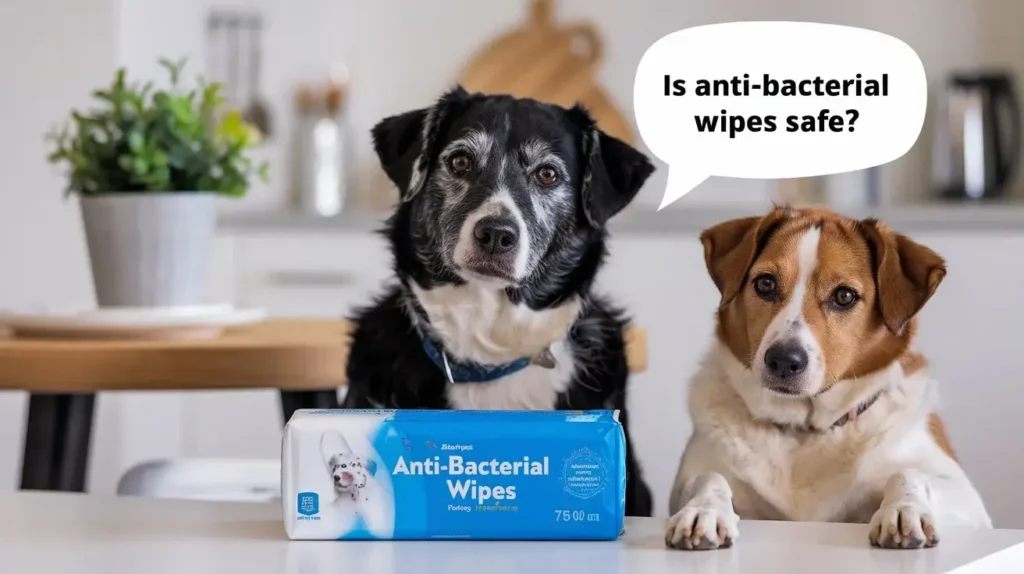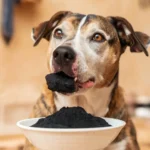Introduction
As responsible pet owners, we want to keep our canine companions clean and healthy. use anti bacterial wipes on dogs have become a popular cleaning tool, but their use on dogs raises important questions about safety and effectiveness. In this comprehensive guide, we’ll delve into the topic of using anti bacterial wipes on dogs , examining the potential benefits, risks, and alternative options to help you make an informed decision for your furry friend.
The desire to maintain our dogs’ cleanliness and hygiene is understandable, and use anti bacterial wipes on dogs can seem like a convenient solution. However, before reaching for these wipes, it’s crucial to understand the potential implications for your dog’s health and well-being. By exploring the pros and cons, as well as alternative cleaning methods, you can make an informed decision that prioritizes the long-term care of your canine companion.
Can You Use Antibacterial Wipes on Dogs?
The Pros and Cons of Using Anti Bacterial Wipes on Dogs
When it comes to using anti bacterial wipes on dogs, there are both potential advantages and disadvantages to consider.
Potential Benefits of Using Anti Bacterial Wipes on Dogs
- Quick Cleanup: anti bacterial wipes on dogs can provide a convenient way to clean up minor messes, such as paw prints or drool, without the need for a full bath.
- Infection Prevention: The antibacterial properties of these wipes may help reduce the risk of bacterial infections, particularly in areas prone to accumulating dirt or bacteria.
- Freshness: anti bacterial wipes on dogs can help keep your dog’s coat and skin feeling clean and refreshed between baths.
Potential Drawbacks of Anti Bacterial Wipes on Dogs
- Skin Irritation: Some dogs, especially those with sensitive skin, may experience irritation or dryness from the chemicals in anti bacterial wipes.
- Toxicity Concerns: Many anti bacterial wipes contain ingredients like alcohol or fragrances that can be harmful if ingested by your dog.
- Disruption of Healthy Skin Bacteria: The antibacterial properties of these wipes may also kill off beneficial bacteria on your dog’s skin, potentially leading to an imbalance in the skin microbiome.
Before using anti bacterial wipes on dogs, it’s crucial to consider these factors and consult with your veterinarian to ensure it’s the best course of action for your furry friend.
Alternatives to Anti Bacterial Wipes for Dogs
If you’re concerned about the potential risks of using anti bacterial wipes on your dog, there are several alternative cleaning options to consider:
Gentle Cleansing Wipes
Look for pet-safe, non-toxic cleansing wipes that are free from harsh chemicals, fragrances, and antibacterial agents. These wipes can help remove dirt, debris, and minor messes without disrupting your dog’s skin microbiome.
Warm Water and Mild Soap
A simple solution of warm water and a mild, pet-safe soap can be an effective and gentle way to clean your dog’s paws, muzzle, or other areas without the use of harsh chemicals.
Dry Shampoo or Powder
Dry shampoos or powders designed for dogs can help freshen your furry friend’s coat between baths without the need for water or harsh cleansers.
Scheduled Baths
Regular bathing with a gentle, veterinarian-recommended shampoo can help keep your dog’s skin and coat healthy, reducing the need for frequent spot cleaning with wipes or other products.
By exploring these alternative cleaning methods, you can maintain your dog’s cleanliness and hygiene while minimizing the potential risks associated with anti bacterial wipes.
When Should You Use Anti Bacterial Wipes on Dogs
While the use of anti bacterial wipes on dogs is generally not recommended as a regular cleaning method, there may be specific situations where they can be appropriate:
Cleaning Dirty Paws
If your dog’s paws have picked up a significant amount of dirt, mud, or other debris, anti bacterial wipes can be a quick and convenient way to clean them before allowing your pet back inside.
Addressing Minor Messes
anti bacterial wipes usage on dogs can be useful for quickly addressing small, localized messes, such as drool or vomit, without the need for a full bath.
Veterinary Recommendations
In certain medical situations, your veterinarian may recommend the use of anti bacterial wipes to help prevent or manage skin infections or other conditions. Always follow your vet’s guidance in these cases.
It’s important to note that even in these limited scenarios, it’s crucial to choose a pet-safe, gentle formula and monitor your dog for any signs of irritation or discomfort.
Tips for Using Anti Bacterial Wipes Safely on Dogs
If you do decide to use anti bacterial wipes on your dog, keep the following safety tips in mind:
Choose Pet-Safe Formulas
Opt for wipes that are specifically designed for use on pets and contain gentle, non-toxic ingredients. Avoid products with harsh chemicals, alcohol, or strong fragrances.
Limit Usage
Use anti bacterial wipes sparingly and only when necessary. Overusing these products can disrupt the natural balance of your dog’s skin microbiome.
Rinse Thoroughly
After using anti bacterial wipes , be sure to thoroughly rinse the area with clean water to remove any residual chemicals or ingredients.
Monitor for Reactions
Closely observe your dog for any signs of skin irritation, redness, or discomfort after using anti bacterial wipes. If you observe any negative reactions, stop using the product immediately and seek advice from your veterinarian.
By following these safety guidelines, you can help minimize the potential risks associated with using anti bacterial wipes on your canine companion.

The Importance of Veterinary Guidance
When it comes to the health and well-being of your canine companion, it’s crucial to seek the advice of a qualified veterinarian. While this article provides a comprehensive overview of the pros and cons of using anti bacterial wipes on dogs, your vet is the best resource for personalized guidance based on your pet’s unique needs, breed, and health status.
Veterinarians have the specialized knowledge and expertise to assess your dog’s skin, coat, and overall condition, and they can recommend the most appropriate cleaning methods and products to maintain your pet’s hygiene without compromising their health. By working closely with your vet, you can ensure that any decisions regarding the use of anti bacterial wipes or other cleaning products are made with your dog’s best interests in mind.
The Potential Consequences of Improper Use
It also has to be put in mind that even though some products are labeled nontoxic to pets, their inappropriate use or overuse can result in the potential appearance of side adverse effects. This is especially true with anti-bacterial wipes, which can disrupt the sensitive balance in the skin microbiome of your pet dog and cause irritation or other problems if not used cautiously.
But using anti-bacterial wipes too much-when less aggressive cleaners would work-or failing to thoroughly rinse the area after application results in skin dryness, irritation, and even increased exposure to, and potential infection by, bacteria and fungi. These could very well cause discomfort for your dog and may even need veterinary attention to get better.
By understanding what the risks and limitations could be, you’ll be better positioned to decide when to use antibacterial wipes and how, ensuring the long-term health and comfort of your furry friend.
Conclusion should you use anti bacterial wipes on dogs
Anti-bacterial wipes are an issue quite intricate, which, with due consideration, needs to come from the owners of pets. Whereas under certain conditions, such products may represent a fast, at-your-convenience cleaning solution, they also have potential drawbacks that could turn out to be more significant for many dogs.
You simply have to weigh the pros against the cons, understand the possible risks, and find milder methods for cleaning that respect your dog’s health and comfort. You can make use of cleansing wipes, warm water with mild soaps, dry shampoos, or regular bathing. These are options in which you can clean your dog without affecting his skin flora.
Ultimately, this will be up to your veterinarian, who can advise you on what is best given your specific dog’s needs and health. Being well-informed and vigilant will help to ensure that your furry friend enjoys a clean, comfortable, and safe area all the time.








